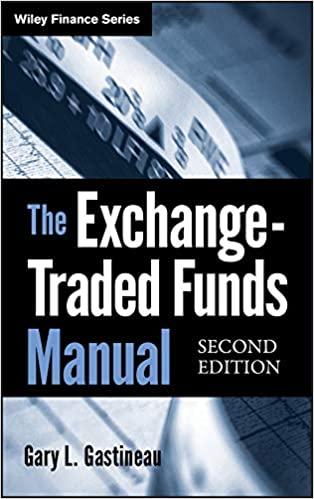Question
Which of the following necessarily imply a violation of the no-arbitrage principle? Assume T > 0 and epsilon > 0. (a) A portfolio which has
Which of the following necessarily imply a violation of the no-arbitrage principle? Assume T > 0 and epsilon > 0.
(a) A portfolio which has zero value today, always non-negative value at T, and positive value at T for some sample outcomes with P({}) > 0.
(b) A portfolio which has zero value today and expected positive value at T.
(c) A portfolio which has value epsilon today and zero value at T.
(d) A portfolio which has value epsilon today and expected positive value at T.
(e) A portfolio which has zero value today and value epsilon at T.
(f) A portfolio which has zero value today and positive value at T for some sample outcomes with positive probability.
(g) A portfolio which has zero value today, always non-negative value at T, and positive value at T for some sample outcomes.
(h) A portfolio which has zero value today, always non-negative value at T, and expected positive value at T.
Step by Step Solution
There are 3 Steps involved in it
Step: 1

Get Instant Access to Expert-Tailored Solutions
See step-by-step solutions with expert insights and AI powered tools for academic success
Step: 2

Step: 3

Ace Your Homework with AI
Get the answers you need in no time with our AI-driven, step-by-step assistance
Get Started


